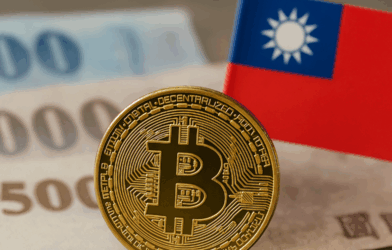The Growing Intersection of Gaming and Crypto
The fusion of mobile gaming and cryptocurrency has created one of the most dynamic sectors in tech. From NFT-based games to play-to-earn ecosystems and blockchain integrations, the boundaries between gaming and digital finance are blurring. However, this rapid innovation also brings new vulnerabilities — and the recent discovery of a major flaw in the Unity game engine highlights just how fragile this intersection can be.
A newly exposed Android vulnerability tied to Unity has sparked concerns across the crypto and gaming communities. Since Unity powers the majority of mobile games worldwide, this flaw has the potential to affect millions of users — including those whose gaming apps are connected to crypto wallets or blockchain-based assets.
The Nature and Scope of the Flaw
Researchers uncovered a vulnerability that allows malicious actors to inject code directly into Unity-based Android games. This means that once a compromised game is running, hackers could embed harmful scripts capable of monitoring activity, stealing sensitive information, or even controlling app behavior.
What makes this issue serious is its reach. Versions of Unity dating back to 2017 are believed to be affected, which covers a vast number of games still active on app stores today. While Android devices are the primary targets, similar risks may exist across Windows, macOS, and Linux platforms.
This type of exploit is particularly dangerous because it operates within a trusted process. When a malicious code runs inside a legitimate app, it’s much harder for antivirus or security tools to detect it. That gives attackers a stealthy way to spy on users or capture information without triggering alarms.
How the Exploit Works
The vulnerability can be used to launch overlay attacks — fake screens layered over real apps — to capture login details or wallet seed phrases. Some versions of the exploit can even escalate privileges at the system level, granting deep access to the device.
The result? Crypto wallets linked to gaming accounts could be drained, login credentials stolen, or private keys compromised. This is especially dangerous for players who use the same mobile device for both gaming and crypto transactions.
Developer and Industry Response
Unity has acknowledged the issue and is reportedly releasing emergency patches to partners and developers. Google has also urged developers to update affected apps and has taken steps to ensure that patched versions are deployed swiftly through the Play Store.
So far, there have been no verified reports of this vulnerability being actively exploited in the wild, but the situation is fluid. The lack of current exploitation does not make the threat less serious — history has shown that once details of a vulnerability become public, bad actors rush to weaponize it.
The Bigger Picture: Rising Crypto Security Risks
The Unity incident is not an isolated case but part of a larger trend. The crypto industry has seen billions of dollars stolen through hacks, phishing campaigns, and mobile-based malware. As centralized exchanges strengthen their defenses, attackers have shifted focus toward individual users — especially those with mobile wallets and decentralized apps.
New strains of malware now use virtualization and screen overlay techniques to trick users into entering their wallet credentials into fake interfaces. Others exploit accessibility permissions or manipulate app libraries to hijack sensitive data.
The rise of mobile crypto apps — coupled with the popularity of blockchain-based gaming — has expanded the attack surface dramatically. Every game that integrates tokenized assets or wallet features becomes a potential target.
Why It Matters for Gamers and Developers
For gamers, the risk is clear. Many modern games are integrated with blockchain components, whether through in-game NFTs, crypto-based reward systems, or wallet connectivity. A flaw in the game’s engine can become a direct gateway to losing digital assets.
For developers, the Unity issue is a wake-up call. With over two-thirds of top mobile games built on Unity, a large portion of the industry must now evaluate its codebase for potential exposure. Studios using older Unity versions will need to patch, audit, and reinforce their security layers.
Beyond patching, the gaming industry must rethink its security culture. This means regular code audits, dependency checks, and integrating runtime protection — not treating security as an afterthought but as a core design principle.
How to Protect Yourself
For Users
- Update all Unity-based games as soon as patches are released. Avoid delaying updates even for games you play casually.
- Only install apps from verified stores. Avoid downloading APKs or modified versions of games from third-party sites.
- Separate your crypto wallets from gaming devices. Use one device for entertainment and another for financial transactions when possible.
- Use hardware or cold wallets to store large amounts of crypto assets securely offline.
- Disable unnecessary permissions such as screen recording or overlays that can be exploited by malicious software.
- Stay alert for suspicious activity. Unexpected login prompts, fake update requests, or new permissions should always be treated with caution.
For Developers
- Audit all game builds to ensure they are running the latest secure version of Unity.
- Apply runtime protection tools to detect code injections and tampering in real time.
- Encrypt critical processes and separate sensitive wallet logic from the main game engine.
- Use secure update mechanisms that are digitally signed and distributed through official channels.
- Launch bug bounty programs to encourage ethical hackers to find vulnerabilities before cybercriminals do.
- Educate players about potential risks through in-game notifications or announcements.
Market Implications and Future Outlook
The Unity flaw highlights how vulnerable the crypto-gaming ecosystem remains at the user level. Even as exchanges and protocols adopt advanced security standards, the weakest link often lies in everyday devices and applications.
If exploited at scale, such vulnerabilities could lead to widespread crypto theft through gaming apps — damaging trust not just in individual games but in blockchain gaming as a whole. The incident reinforces the need for coordinated action between wallet providers, game developers, and security firms.
Moving forward, game studios integrating blockchain elements will face higher scrutiny from both regulators and players. Security certifications, regular audits, and transparent patching cycles could become standard expectations.
Ultimately, this event is a reminder that innovation must go hand in hand with security. As gaming and crypto continue to merge, developers and users alike must treat cybersecurity not as an optional feature, but as a fundamental layer of the experience.











